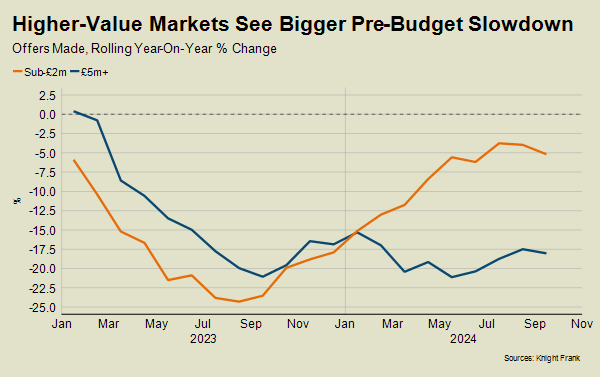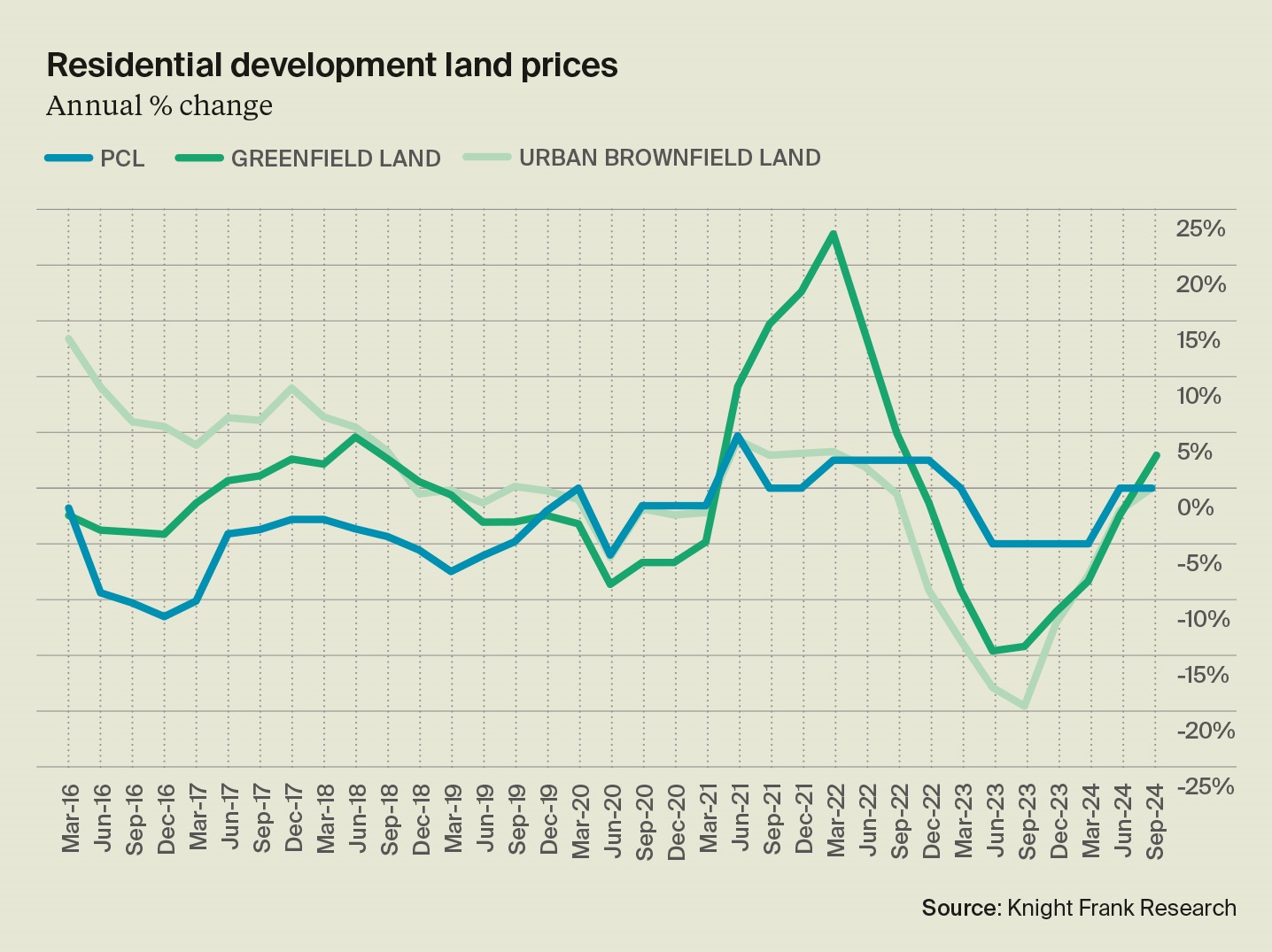The IMF dishes out upgrades to the UK outlook
Making sense of the latest trends in property and economics from around the globe
4 minutes to read
Global economic growth should hold steady at 3.2% in both 2024 and 2025 as inflation eases and central banks cut rates, according to a new set of forecasts from the IMF. The group expects growth to keep ticking along at 3.1% five years from now, which is mediocre compared to the pre-pandemic average but would surely be a positive outcome considering the myriad downside risks the global economy now faces.
An escalation of regional conflicts, central banks holding monetary policy too tight for too long, a potential resurgence of financial market volatility that prompts disruption in sovereign debt markets, a deepening slowdown in China and a continued ratcheting up of protectionist policies all have the power to derail growth.
The UK gets the largest upgrade of any G7 nation. Growth is projected to have accelerated to 1.1% in 2024, more than double the IMF's estimate of 0.5% growth from six months ago. The economy will expand another 1.5% in 2025 "as falling inflation interest rates stimulate domestic demand."
The IMF's forecasts hinge largely on those produced by the Bank of England's Monetary Policy Committee, which in turn are underpinned by former chancellor Jeremy Hunt's fiscal plans. The outlook may shift notably from next week, when current chancellor Rachel Reeves delivers her Budget. Much has been said about tax-hikes, but this will be an expansionary budget, according to Pantheon Economics. Increased public spending will cancel out the tax rises and will result in a boost to GDP, however that will also ensure that the base rate will be between 0.25% and 0.5% higher than it otherwise would have been during the next financial year.
Distortions
Speculation over tax changes impacts property market activity, and right now the impact is significant.
Buyers in prime property markets have opted to sit tight for more clarity from The Chancellor, particularly at higher price brackets - see Tom Bill's note from Monday. The number of offers made on UK properties below £2 million fell 5% in the year to September. The drop extended to 18% above £5 million.
We're also seeing landowners seeking to dispose of sites quickly amid concerns over increases to Capital Gains Tax, according to a new Knight Frank Residential Development Land Index from Anna Ward. They aren't the only ones: CGT receipts surged 16.3% in the third quarter, according to official HMRC figures covered by the FT. Monthly CGT receipts for September came in at £192m, the highest figure recorded for the month since at least 2008.

The land market
Despite tax risks, the UK's brightening economic outlook is fuelling competition among housebuilders in the land market. Average England greenfield land values rose 3% on both an annual and quarterly basis during the three months through September (see chart). Brownfield and Prime Central London prices remained flat due to thin activity, partly due to Budget uncertainty.
Housebuilders want to replenish depleted pipelines. Bids are going in for smaller schemes of 50 units through to 900 units plus. There is appetite for both consented sites as well as more medium-term planning opportunities. There is also growing interest in strategic land - developers are taking a longer-term view considering the fact the National Planning Policy Framework is set to loosen up restrictions on greenbelt development. The net result could be the planning window shortening. Sites that may have taken five years to get allocated in local plans could now see this timeline shrink to just a couple of years.
The loosening of permitted development restrictions has led to an uptick in applications to convert commercial premises into housing. The most recent government data shows that 395 permitted development applications were received in the third quarter of 2024, a three year high. This marks the highest level reached since the rush before the space cap was introduced in August 2021 which resulted in 688 applications before the window closed in Q3 of that year.

Finite opportunities
As with housebuilders, investors appear bullish on the UK's longer-term prospects. Nearly £840 million was invested in the UK purpose-built student accommodation (PBSA) market in the third quarter of 2024 across 15 deals, according to the latest update from Oliver Knight.
Investment volumes for Q3 were comfortably above the 10-year average for the quarter of just shy of £700 million. It takes total investment so far in 2024 to £3.3 billion, notably ahead of the £2 billion which had been spent at the same point last year. That said, 30% is associated with Singaporean-based Mapletree’s acquisition of the Cuscaden Peak Portfolio in Q2.
Historically, stabilised PBSA assets have been the most appealing for investors when looking to get a foothold in the UK market, but alternative pathways to deploying dry powder are strengthening, given the finite opportunity of standing stock acquisitions. Land acquisitions are the highest they have ever been annually, at 18 site sales over the nine months of the year.
In other news...
Can the private sector deliver Labour’s housebuilding boom? (FT).